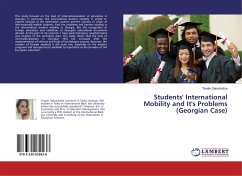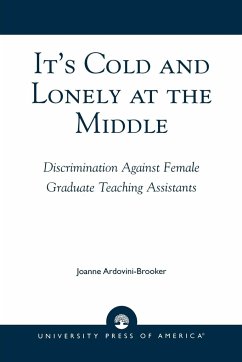
It's Time for a Change
School Reform for the Next Decade
Versandkostenfrei!
Versandfertig in 1-2 Wochen
58,99 €
inkl. MwSt.
Weitere Ausgaben:

PAYBACK Punkte
29 °P sammeln!
The United States entered the 21st century as the world's sole superpower. Our diplomatic strength, military might, financial resources, and technological innovation were, and continue to be, the envy of the world. However, in the crucial area of education, the U.S. lags behind many other developed countries. Though the U.S. spends more per student than almost any other country, international exams have demonstrated that we consistently perform well behind countries such as South Korea, China, Japan, and Finland in the areas of reading and math. There are even more worrying elements at play, h...
The United States entered the 21st century as the world's sole superpower. Our diplomatic strength, military might, financial resources, and technological innovation were, and continue to be, the envy of the world. However, in the crucial area of education, the U.S. lags behind many other developed countries. Though the U.S. spends more per student than almost any other country, international exams have demonstrated that we consistently perform well behind countries such as South Korea, China, Japan, and Finland in the areas of reading and math. There are even more worrying elements at play, however. Paramount among these is the fact that the U.S. educational system is becoming ever more stratified. Despite efforts such as the George W. Bush administration's No Child Left Behind Act (NCLB), the disparity in academic achievement between students from high and low socioeconomic classes continues to grow. The ramifications of this trend are vast. China, Japan, and South Korea understand that well-educated workers are crucial for survival in the competitive global economy. Thus, they are placing enormous emphasis on education, ensuring that their students receive instruction not only foundational reading and math, but are also taught to think creatively and solve problems. Their youth are poised to take on and conquer the world. The U.S., on the other hand, is losing the battle. School systems are using more money but have less to show for it. Test results, especially among the lower socioeconomic classes, are dismal. America has extraordinary natural resources, a solid, functioning democracy, and excellent infrastructure, but unless we can reform our educational system to produce students who are able to take advantage of new technologies and compete in the global economy, we will cede our position as world leader. Its Time for Change: School Reform provides a no nonsense blueprint for reforming The U. S. educational system in a manner that will ensure that it secures its position as the preeminent word leader.













